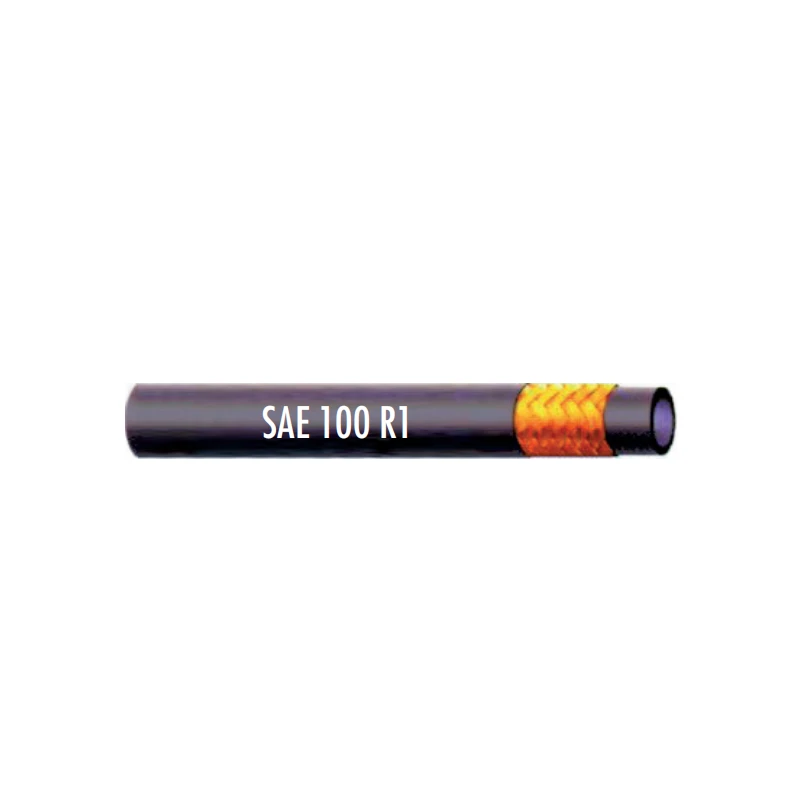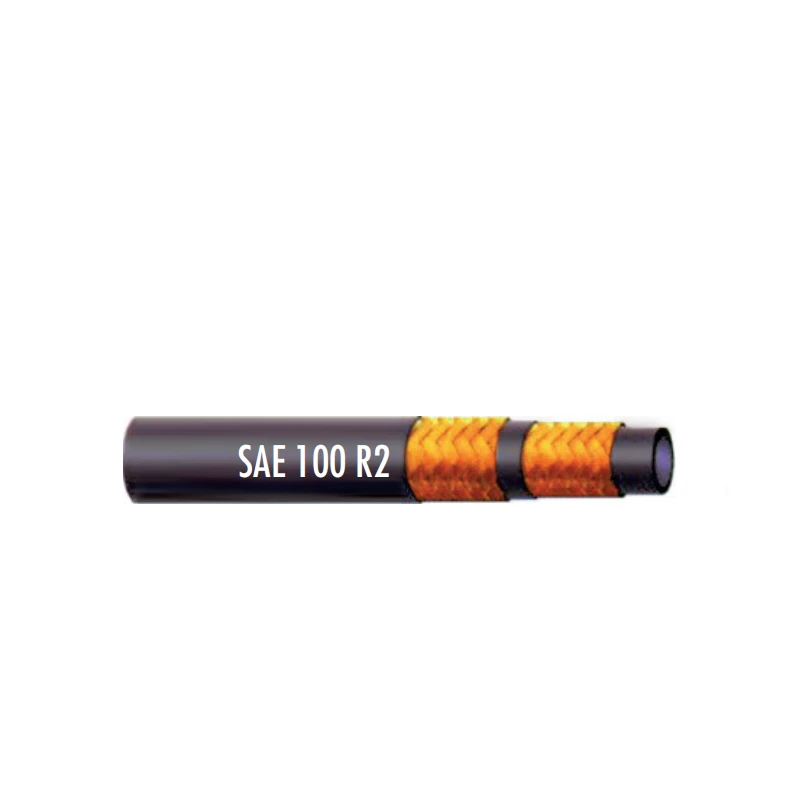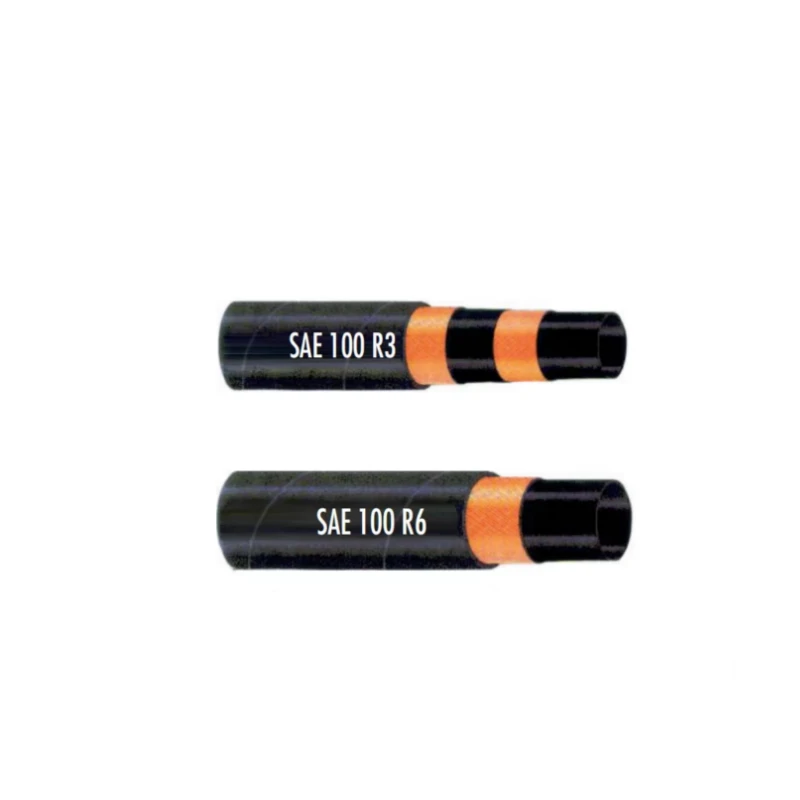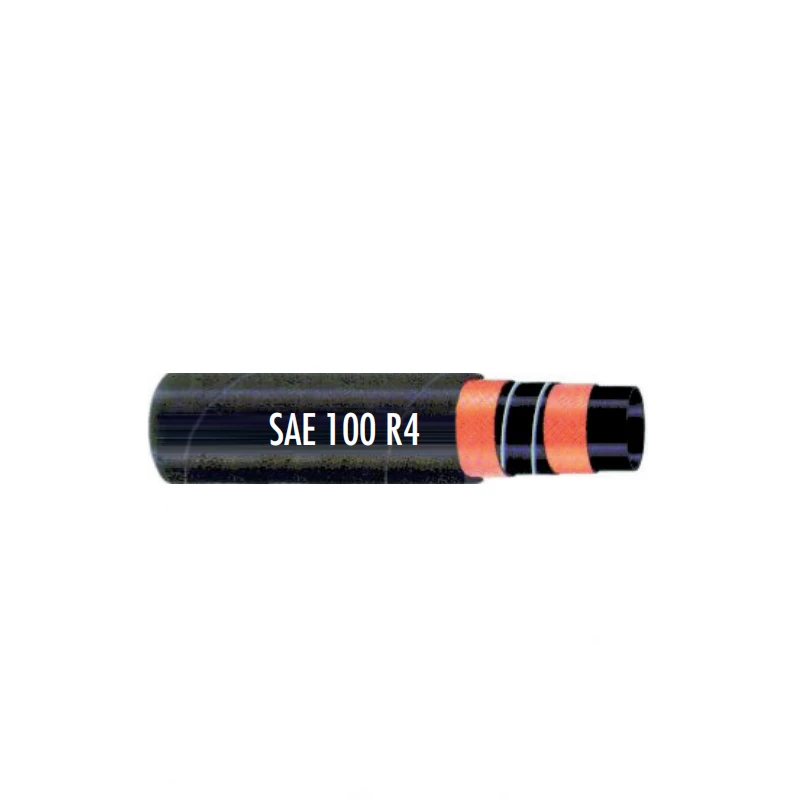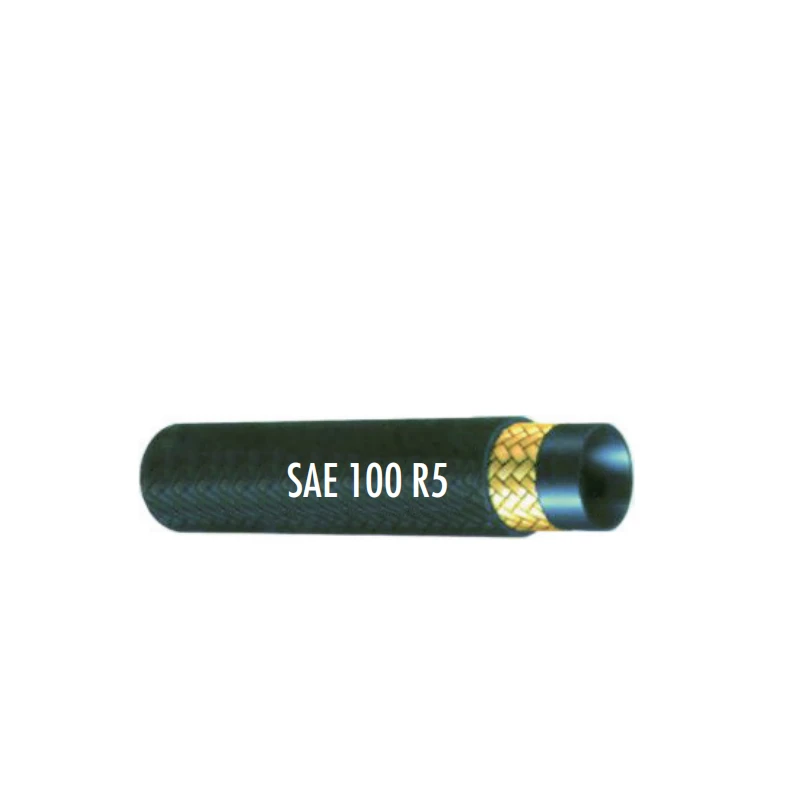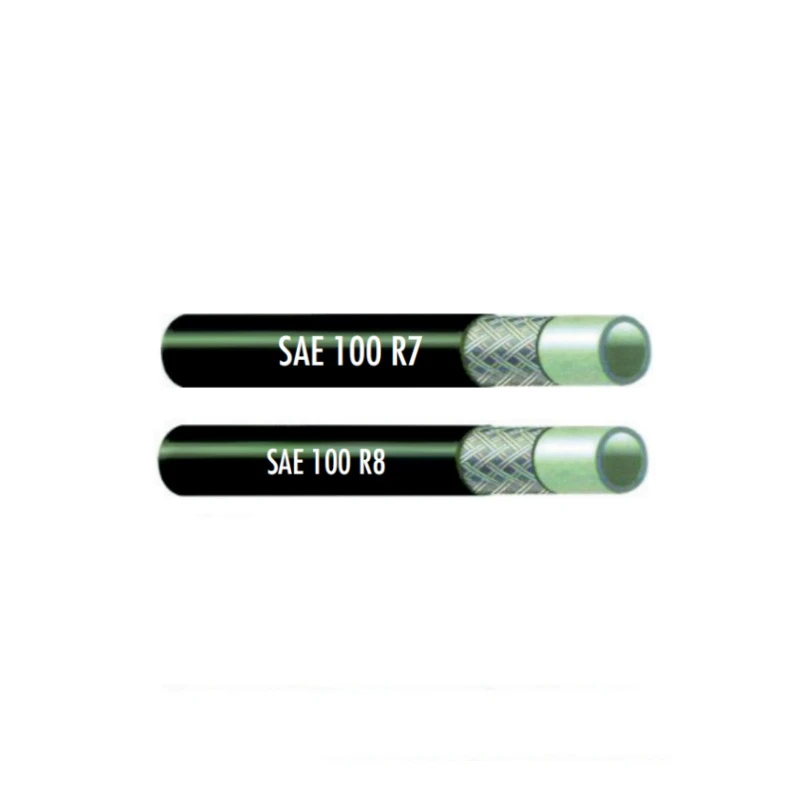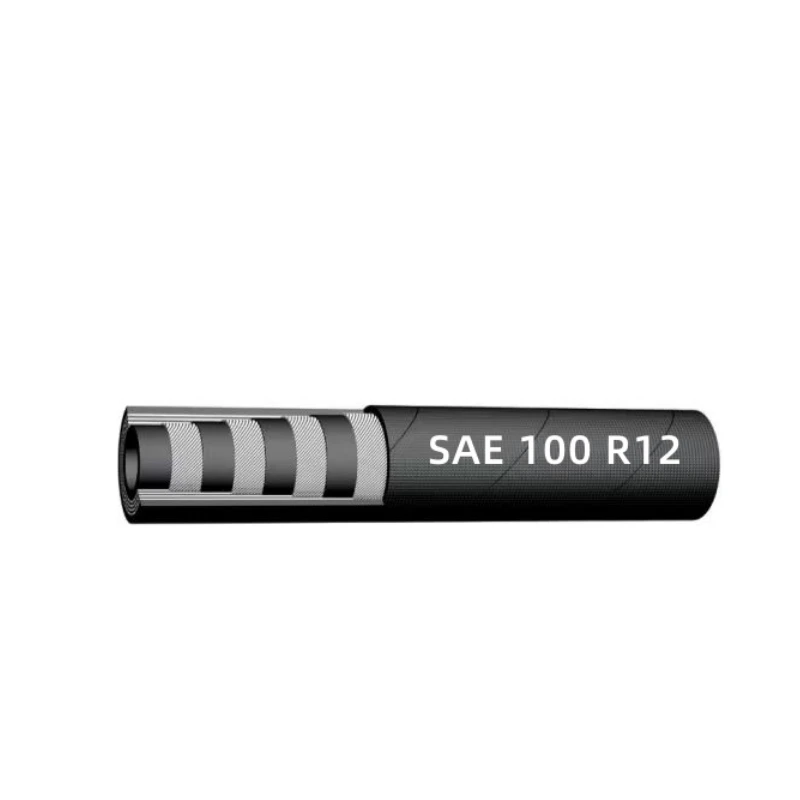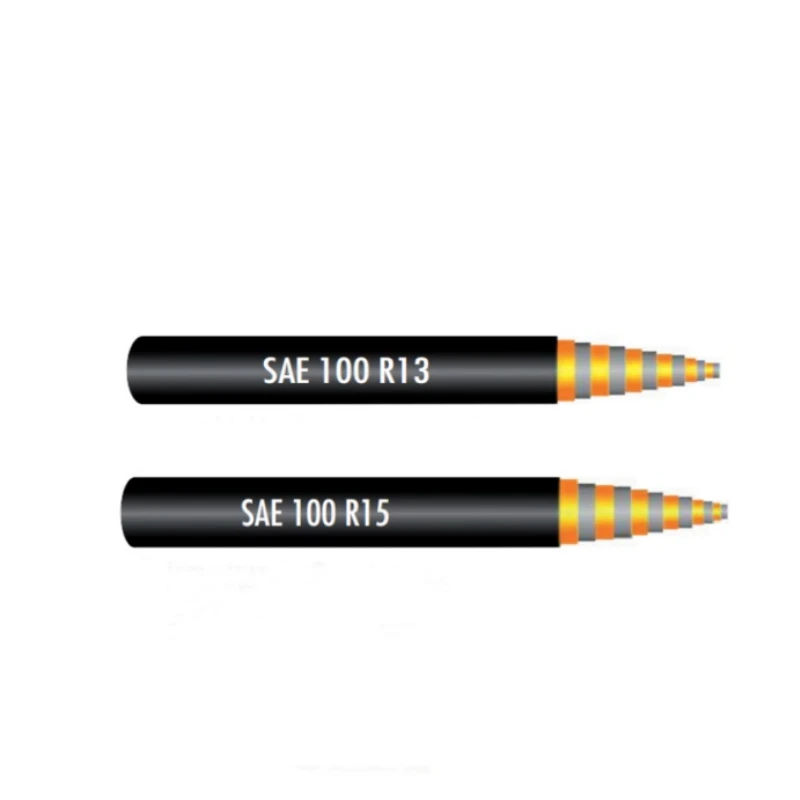
- Afrikaans
- Albanian
- Amharic
- Arabic
- Armenian
- Azerbaijani
- Basque
- Belarusian
- Bengali
- Bosnian
- Bulgarian
- Catalan
- Cebuano
- Corsican
- Croatian
- Czech
- Danish
- Dutch
- English
- Esperanto
- Estonian
- Finnish
- French
- Frisian
- Galician
- Georgian
- German
- Greek
- Gujarati
- haitian_creole
- hausa
- hawaiian
- Hebrew
- Hindi
- Miao
- Hungarian
- Icelandic
- igbo
- Indonesian
- irish
- Italian
- Japanese
- Javanese
- Kannada
- kazakh
- Khmer
- Rwandese
- Korean
- Kurdish
- Kyrgyz
- Lao
- Latin
- Latvian
- Lithuanian
- Luxembourgish
- Macedonian
- Malgashi
- Malay
- Malayalam
- Maltese
- Maori
- Marathi
- Mongolian
- Myanmar
- Nepali
- Norwegian
- Norwegian
- Occitan
- Pashto
- Persian
- Polish
- Portuguese
- Punjabi
- Romanian
- Russian
- Samoan
- scottish-gaelic
- Serbian
- Sesotho
- Shona
- Sindhi
- Sinhala
- Slovak
- Slovenian
- Somali
- Spanish
- Sundanese
- Swahili
- Swedish
- Tagalog
- Tajik
- Tamil
- Tatar
- Telugu
- Thai
- Turkish
- Turkmen
- Ukrainian
- Urdu
- Uighur
- Uzbek
- Vietnamese
- Welsh
- Bantu
- Yiddish
- Yoruba
- Zulu

Aug . 07, 2025 04:40 Back to list
Wholesale Air Hoses: Bulk & Durable Solutions for Every Need
In the expansive world of industrial operations, the reliable transfer of compressed air is fundamental. From powering pneumatic tools in construction to ensuring critical airflow in manufacturing lines, the quality and durability of air hoses are paramount. This comprehensive guide delves into the specifics of obtaining high-quality air hose wholesale, focusing on the Textile Reinforced Air Hose from JY Hose, exploring industry trends, technical intricacies, and strategic procurement. Understanding the nuances of air hose wholesale is not just about cost-efficiency; it's about operational integrity and long-term performance.
Industry Trends and Market Dynamics for Air Hoses
The global market for industrial hoses, including **air hose wholesale**, is experiencing steady growth, driven by expansion in manufacturing, construction, and automotive sectors. Key trends shaping this market include:
- Technological Advancements: Innovations in material science are leading to hoses with enhanced flexibility, higher pressure ratings, and superior resistance to abrasion and chemicals. The integration of smart monitoring technologies for predictive maintenance is also emerging.
- Sustainability and Environmental Regulations: Growing emphasis on eco-friendly materials and manufacturing processes, along with stricter regulations on emissions and waste, are influencing product design and supplier choices.
- Demand for Customization: Industries increasingly require specialized solutions, leading to a rise in demand for custom lengths, diameters, fittings, and specific material compositions that can withstand extreme conditions, such as those needed for air duct hose or air cooler hose applications.
- Supply Chain Resilience: The past few years have highlighted the importance of robust and reliable supply chains, making partnerships with experienced and well-stocked **air hose wholesale** suppliers crucial for uninterrupted operations. The concept of air hose bulk purchasing is gaining traction for cost savings and inventory management.
Textile Reinforced Air Hose: Technical Parameters and Specifications
The Textile Reinforced Air Hose, available at https://www.jyhose.com/textile-reinforced-air-hose.html, is a prime example of a versatile and robust solution for various industrial applications. Its design, featuring a durable inner tube, textile reinforcement, and a weather-resistant outer cover, ensures longevity and consistent performance under demanding conditions. Understanding the specific technical parameters is vital when selecting the right **air hose wholesale** product.
Key Product Features of Textile Reinforced Air Hose
- Construction: Inner tube (typically Synthetic Rubber, like NBR or SBR), high-tensile textile reinforcement (braided or spiral), outer cover (abrasion and weather resistant synthetic rubber).
- Working Pressure: Ranges from 20 Bar (290 PSI) to 30 Bar (435 PSI), or even higher for specialized applications. Burst pressure is typically 3-4 times the working pressure.
- Temperature Range: Operates efficiently in temperatures from -30°C to +80°C (-22°F to +176°F), with some variants extending this range.
- Diameters: Available in a wide range of standard internal diameters (ID) from 6mm (1/4 inch) up to 51mm (2 inches) or more, catering to various air flow hose requirements.
- Applications: Ideal for compressed air lines, pneumatic tools, rock drilling, mining, construction, and general industrial air transfer. This type of hose is fundamental for anyone looking for reliable air hose.
Typical Air Hose Parameter Comparison Table
When sourcing air hose wholesale, comparing key specifications is crucial. Below is a table illustrating common parameters for different types of air hoses, including the Textile Reinforced Air Hose:
| Parameter | Textile Reinforced Air Hose (JY Hose) | PVC Air Hose (Standard) | Rubber Air Hose (Heavy Duty) | PU Air Hose (Light Duty) |
|---|---|---|---|---|
| Material (Inner/Outer) | Synthetic Rubber (NBR/SBR/EPDM) / Synthetic Rubber | PVC / PVC | SBR/NR Blend / EPDM | Polyurethane / Polyurethane |
| Reinforcement | High-Tensile Textile Braid/Spiral | Polyester Fiber Braid | Multi-ply Textile Braid | No Reinforcement |
| Working Pressure (PSI) | 290 - 435 | 150 - 200 | 300 - 500 | 100 - 150 |
| Burst Pressure (PSI) | 870 - 1740 | 450 - 600 | 900 - 1500 | 300 - 450 |
| Temperature Range (°C) | -30 to +80 | -5 to +65 | -40 to +90 | -20 to +70 |
| Abrasion Resistance | Excellent | Good | Superior | Moderate |
| Flexibility | Good to Excellent | Moderate (stiffens in cold) | Good | Excellent (remains flexible in cold) |
| Oil/Chemical Resistance | Good (depending on rubber type) | Limited | Good | Limited |
| Typical Applications | General Industrial, Pneumatic Tools, Mining, Construction | Light Duty Air, Water, Sprayers | Heavy Industrial, Welding, Agriculture | Air Tools, Robotics, Air Horns |
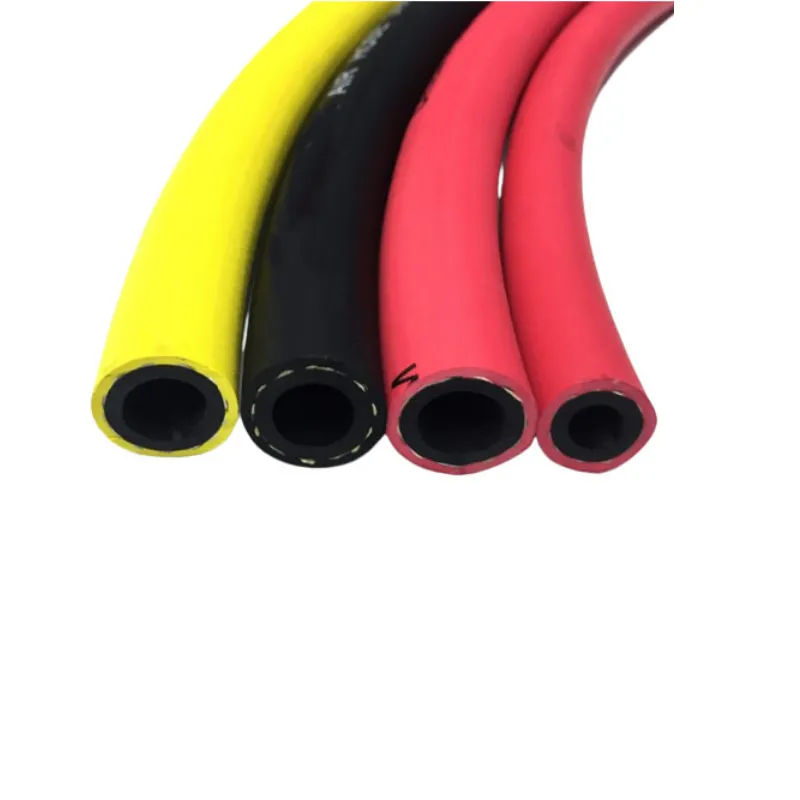
Crafting Excellence: The Manufacturing Process of Textile Reinforced Air Hose
The manufacturing of a Textile Reinforced Air Hose, a cornerstone of air hose wholesale offerings, is a sophisticated process that combines material science with precision engineering. It ensures the hose meets stringent performance requirements for durability, flexibility, and pressure resistance. Here's a detailed breakdown:
1. Material Preparation and Inner Tube Extrusion
The journey begins with carefully selected raw materials. For the inner tube, high-quality synthetic rubbers like Nitrile Butadiene Rubber (NBR) or Styrene-Butadiene Rubber (SBR) are commonly used due to their excellent resistance to compressed air, oils (if present in the air stream), and aging. These rubber compounds are mixed with additives to achieve desired properties such as flexibility, wear resistance, and temperature tolerance. The mixed compound is then fed into an extruder, where it is heated and forced through a die to form the seamless inner tube of the desired internal diameter. This process, known as extrusion, creates a uniform and smooth internal surface, crucial for optimal air flow hose characteristics.
2. Textile Reinforcement Application (Braiding/Spiraling)
Once the inner tube cools, it moves to the reinforcement stage. This is where the hose gains its strength and pressure rating. High-tensile synthetic textile fibers, such as polyester or nylon, are applied around the inner tube. There are two primary methods:
- Braiding: Multiple spools of fiber are interwoven around the inner tube in a crisscross pattern. This provides excellent burst pressure resistance and flexibility.
- Spiraling: Layers of fiber are wrapped around the inner tube in a spiral fashion. This method is often used for larger diameter hoses or those requiring exceptional kink resistance.
This textile layer is critical for defining the hose's working pressure and overall structural integrity, making it suitable for heavy-duty applications like air horn hose or industrial pneumatic systems.
3. Outer Cover Extrusion
Following the reinforcement, an outer cover, also made from a durable synthetic rubber (often EPDM or SBR blend), is extruded over the reinforced inner tube. The outer cover serves as a protective shield against external factors such as abrasion, ozone, UV radiation, weathering, and mild chemicals. This layer ensures the hose maintains its performance and appearance even in harsh industrial environments. The choice of outer cover material directly impacts the hose's lifespan and resistance to specific environmental challenges.
4. Curing/Vulcanization
The assembled hose, with its inner tube, reinforcement, and outer cover, then undergoes a curing or vulcanization process. This typically involves heating the hose in a steam autoclave or a continuous curing line. Vulcanization is a chemical process that cross-links the polymer chains in the rubber, transforming it from a thermoplastic to a thermoset elastomer. This irreversible change significantly enhances the rubber's elasticity, strength, temperature resistance, and durability, making the hose resilient and capable of handling repeated stress cycles. Without proper curing, the hose would not possess its required performance characteristics.
5. Quality Control and Testing
Before leaving the factory, every batch of Textile Reinforced Air Hose undergoes rigorous quality control and testing. This ensures compliance with international standards and product specifications. Common tests include:
- Pressure Testing: Hoses are subjected to specified working and burst pressures to verify structural integrity (e.g., in accordance with ASTM D380 or ISO 1402).
- Dimensional Checks: Inner diameter, outer diameter, and wall thickness are measured to ensure consistency.
- Adhesion Testing: Layers (inner tube to reinforcement, reinforcement to cover) are tested for proper bonding.
- Flexibility and Kink Resistance: Hoses are bent to specified radii to ensure they do not kink or collapse.
- Aging and Ozone Resistance: Samples are exposed to accelerated aging conditions to predict long-term performance.
- Visual Inspection: Checking for surface defects, uniform color, and proper branding.
Adherence to standards like **ISO 9001** (Quality Management Systems) and industry-specific norms such as **ANSI** for certain applications ensures that the air hose bulk purchases meet the highest quality benchmarks. This meticulous process ensures that each meter of hose delivered for air hose wholesale orders performs reliably in the field.
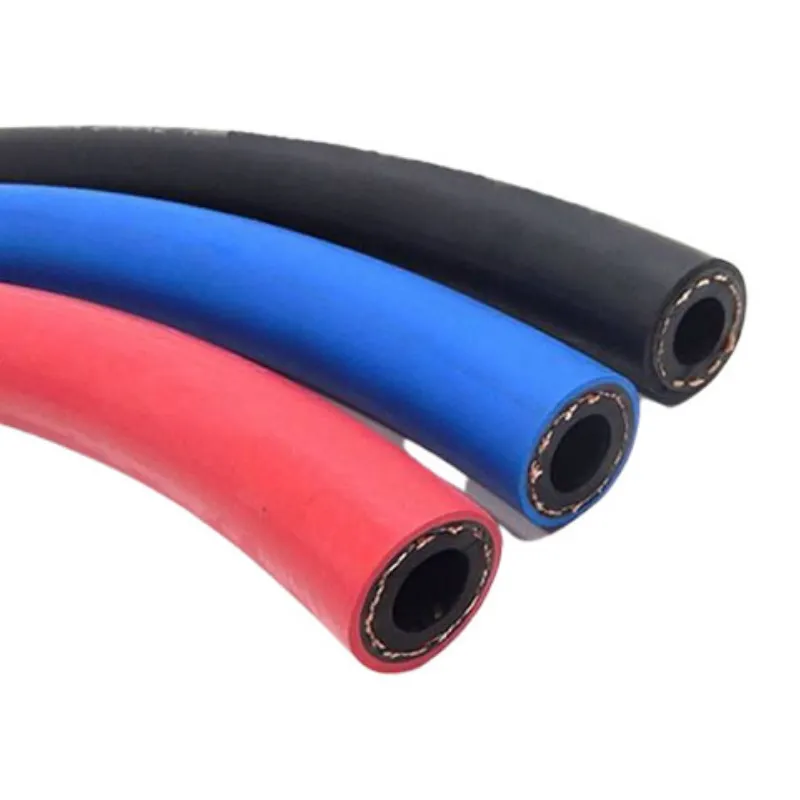
Technical Advantages of Textile Reinforced Air Hose
The specific design and manufacturing process of Textile Reinforced Air Hoses provide several distinct advantages, making them a preferred choice for various industrial needs, especially when considering air hose wholesale:
- Superior Pressure Resistance: The textile reinforcement effectively distributes pressure, preventing bulging and bursting even under high working pressures. This is crucial for maintaining consistent air flow hose performance.
- Excellent Flexibility: Despite their robust construction, these hoses offer good flexibility, allowing for easier handling, installation, and routing in tight spaces. This reduces installation time and labor costs.
- Durability and Abrasion Resistance: The tough outer cover protects against cuts, abrasions, and general wear and tear, significantly extending the hose's service life in demanding industrial environments.
- Wide Temperature Range: Capable of operating across a broad spectrum of temperatures, they remain pliable in cold conditions and stable in hot environments, preventing premature cracking or hardening.
- Chemical and Oil Resistance: Depending on the specific rubber compounds used (e.g., NBR for oil resistance), these hoses can withstand exposure to various oils, greases, and non-corrosive chemicals often found in industrial settings. This is particularly important for petrochemical applications.
- Corrosion Resistance: Unlike metal pipes, rubber hoses are inherently resistant to rust and many corrosive elements, ensuring clean air delivery and longevity in moist or aggressive atmospheres, especially beneficial for applications like air cooler hose or in general humid environments.
- Energy Efficiency: A smooth inner bore reduces friction and pressure drop, leading to more efficient air transfer and potentially lower energy consumption for compressors. This contributes to significant cost savings over the hose's lifespan.
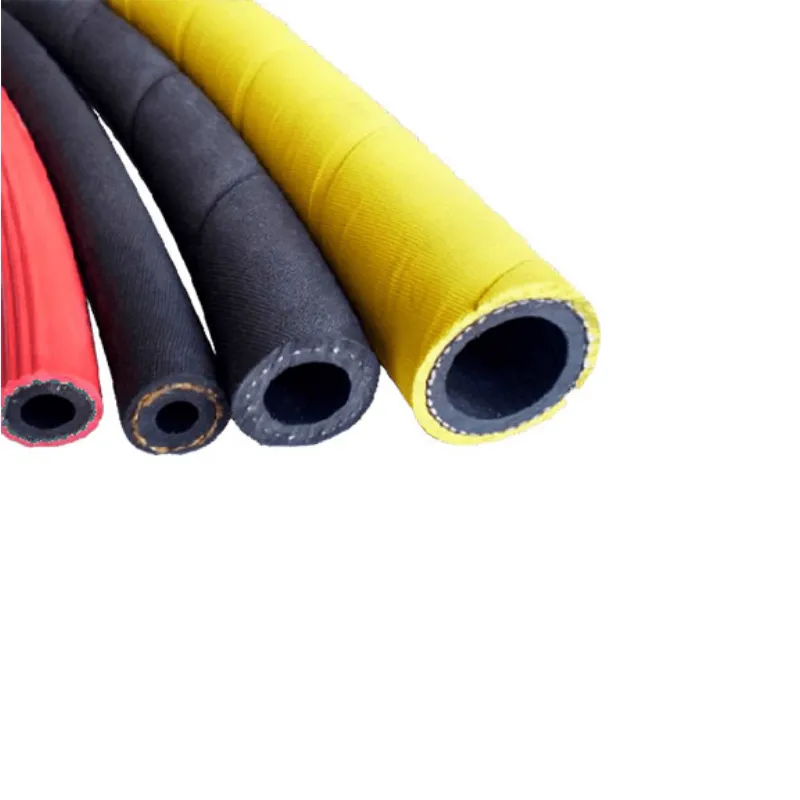
Diverse Application Scenarios
The versatility of Textile Reinforced Air Hoses makes them indispensable across a multitude of industries. Their robust design ensures reliable performance in critical operations:
- Construction and Mining: Powering pneumatic tools like jackhammers, drills, and concrete vibrators. Their durability withstands rough terrain and abrasive conditions. Essential for heavy-duty air hose needs.
- Manufacturing and Fabrication: Supplying compressed air to assembly lines, spray painting equipment, and robotic systems. Maintaining consistent air pressure and flow is vital for operational efficiency.
- Petrochemical and Chemical Industries: Transporting air or inert gases in environments where resistance to certain chemicals, oils, and high temperatures is crucial. This includes applications in refineries and chemical processing plants.
- Metallurgy and Foundries: Used for pneumatic controls, cooling systems, and powering equipment in high-temperature environments. Their heat resistance and robustness are highly valued here.
- Automotive Industry: For tire inflation, paint booths, assembly tools, and general workshop air supply. The flexibility aids in maneuverability around vehicles.
- Shipbuilding and Marine: Essential for pneumatic tools during construction and maintenance, and for onboard air systems, often facing saltwater and humid conditions.
- Agriculture: For operating pneumatic tools on farms, irrigation systems, and powering machinery requiring compressed air, such as for sprayers.
- Water Supply and Drainage: Though primarily for air, robust rubber hoses can be adapted for certain low-pressure water transfer tasks where flexibility and durability are needed.
Choosing Your Partner: Manufacturer Comparison and Selection
Selecting the right air hose wholesale supplier is as critical as the product itself. A reliable manufacturer offers more than just competitive pricing; they provide expertise, consistent quality, and responsive support. Here are key aspects to consider and a comparative overview:
Criteria for Manufacturer Selection
- Experience and Reputation: Look for manufacturers with a proven track record in the industrial hose sector. Years of operation and positive industry feedback (like for JY Hose) are strong indicators.
- Quality Certifications: Ensure the manufacturer adheres to international quality management standards like ISO 9001. Product-specific certifications (e.g., ASTM, DIN, SAE) demonstrate commitment to product excellence.
- Research & Development Capabilities: A manufacturer committed to R&D is likely to offer innovative products, material advancements, and custom solutions.
- Customization Capabilities: For air hose bulk orders, the ability to provide tailored lengths, fittings, colors, and specific material compounds is a significant advantage.
- Customer Support and After-Sales Service: Prompt technical support, clear warranty policies, and efficient handling of inquiries are crucial for a smooth partnership.
- Production Capacity and Delivery: Assess their ability to meet large **air hose wholesale** orders and maintain consistent delivery schedules.
Manufacturer Comparison Checklist (Generic Example)
| Feature/Criteria | JY Hose (Example) | Manufacturer B (Competitor) | Manufacturer C (Competitor) |
|---|---|---|---|
| Years in Business | 20+ Years | 10-15 Years | 5-10 Years |
| Key Certifications | ISO 9001, ASTM, REACH | ISO 9001 | Basic QC |
| Customization Options | Extensive (Length, ID, Cover, Branding) | Limited (Length, ID) | Minimal |
| Warranty Period | Standard 1-Year | Standard 6-Months | Case-by-Case |
| R&D Investment | High (New Materials, Smart Hose) | Moderate | Low |
| Global Distribution | Yes, Direct & Partners | Regional Focus | Local Only |
| Customer Service Rating | Excellent (Responsive, Knowledgeable) | Good | Average |
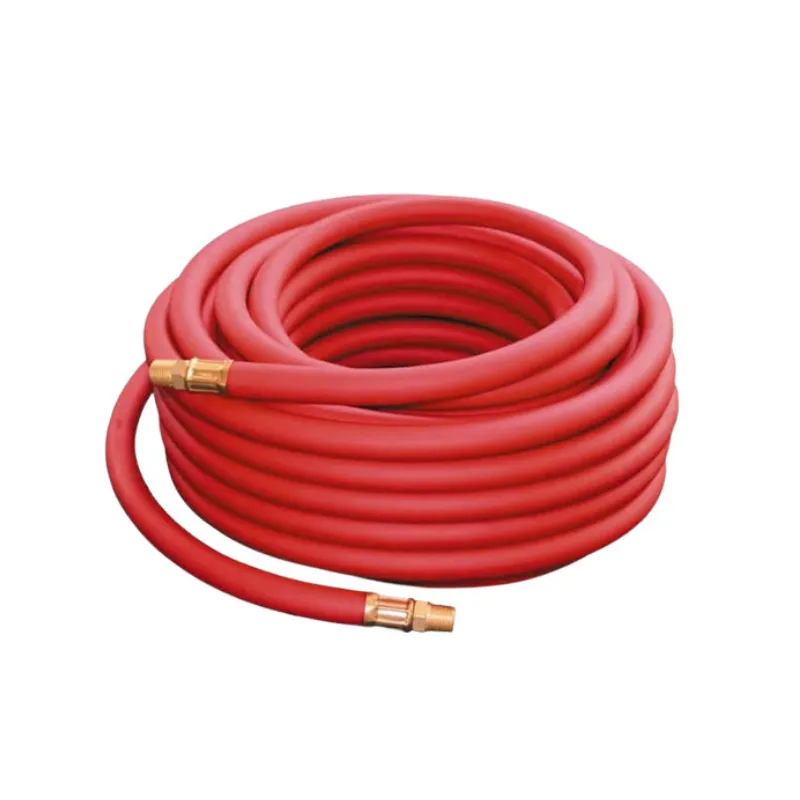
Tailored Solutions: Customization for Your Specific Needs
While standard Textile Reinforced Air Hoses cover a broad range of applications, many industries benefit significantly from customized solutions, particularly when procuring air hose bulk. A reputable air hose wholesale provider like JY Hose understands that unique operating environments demand specialized products.
Customization options can include:
- Specific Diameters and Lengths: Beyond standard sizes, hoses can be manufactured to precise internal or external diameters and cut to exact lengths, minimizing waste and ensuring a perfect fit.
- Specialized Inner Tube Materials: For aggressive environments, inner tubes can be made from highly chemical-resistant rubbers (e.g., Viton for certain hydrocarbons) or food-grade materials for sensitive applications.
- Reinforcement Optimization: Adjusting the type and density of textile reinforcement to achieve higher working pressures or enhanced flexibility for specific bend radius requirements.
- Custom Outer Covers: Developing outer covers with enhanced resistance to extreme temperatures, UV radiation, ozone, specific chemicals, or flame retardancy. This can extend hose life in challenging conditions.
- Color Coding and Branding: Hoses can be manufactured in specific colors for easy identification of different air lines or for company branding. Private labeling is also common for **air hose wholesale** distributors.
- Integrated Fittings and Assemblies: Many manufacturers offer pre-assembled hoses with crimped or clamped fittings (NPT, BSP, universal quick connectors) to client specifications, saving time and ensuring leak-proof connections. This is especially useful for large air hose bulk orders.
Partnering with a manufacturer capable of delivering these custom solutions ensures that your air hose wholesale investment directly aligns with your operational efficiency goals and safety standards.
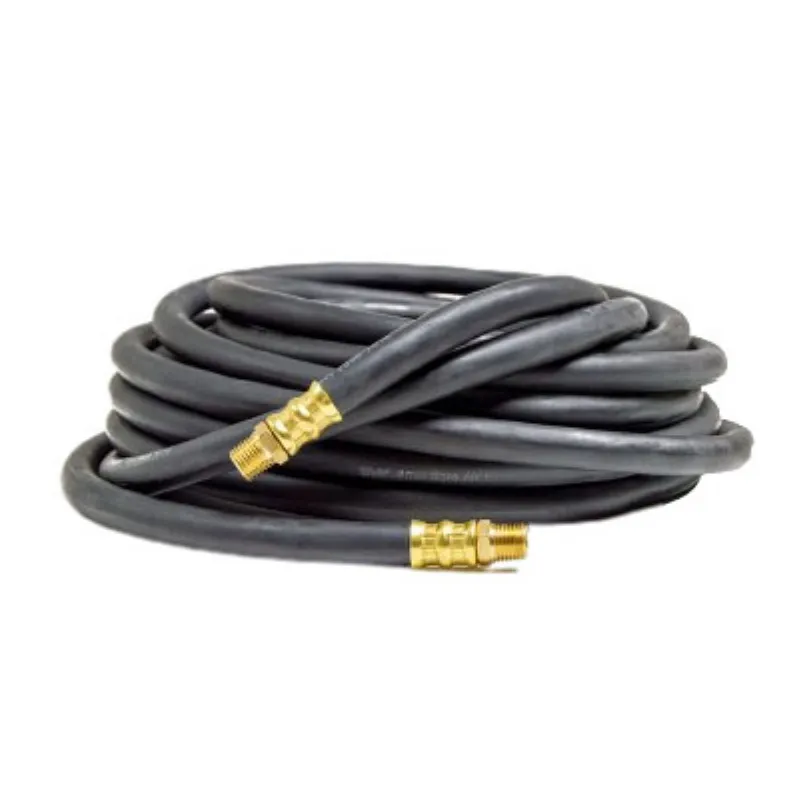
Real-World Impact: Application Cases and Client Feedback
The true measure of an air hose's quality lies in its performance in the field. Here are illustrative scenarios and feedback that highlight the practical benefits of high-quality Textile Reinforced Air Hoses from a reliable air hose wholesale supplier:
Case Study 1: Large-Scale Construction Project
Challenge: A major civil engineering firm undertaking a large infrastructure project faced frequent failures of generic air hoses, leading to costly downtime for pneumatic tools (jackhammers, concrete breakers). The rough, abrasive environment and fluctuating temperatures severely degraded their hoses.
Solution: They switched to Textile Reinforced Air Hoses, procured as air hose bulk from a specialist manufacturer. These hoses featured an extra-thick, abrasion-resistant outer cover and a higher working pressure rating.
Result: Hose failures decreased by over 80% within the first month. This translated to a 15% improvement in overall project efficiency due to reduced tool downtime, saving thousands of dollars in labor and repair costs. The superior flexibility also made deployment easier across varied terrain.
Case Study 2: Automotive Assembly Line Optimization
Challenge: An automotive manufacturer required consistent and clean air supply for their paint shop and robotic assembly lines. Their existing PVC hoses were prone to kinking, causing pressure drops and inconsistent paint finishes, and becoming stiff in cooler areas.
Solution: The company opted for Textile Reinforced Air Hoses with a specific focus on kink resistance and a wider operating temperature range, supplied via air hose wholesale. They also chose custom lengths with pre-installed quick-connect fittings to streamline installation.
Result: Kinking issues were virtually eliminated, leading to a consistent air supply and a noticeable improvement in paint quality. The hoses' flexibility also improved maneuverability of robotic arms and handheld tools, contributing to a 5% increase in line productivity. "The new air hoses have significantly reduced our micro-stoppages and improved the consistency of our paint application," stated their plant manager.
Client Feedback Snippets:
- "We've been sourcing our **air hose wholesale** from JY Hose for five years now, and the consistency in quality is unmatched. Their Textile Reinforced Air Hoses stand up to the daily abuse in our mining operations far better than any other brand we've tried." - Procurement Manager, Global Mining Co.
- "For our air duct hose and air cooler hose requirements, we needed something that could handle both pressure and varied temperatures without compromising on flexibility. The customized solutions we received made a real difference in our HVAC system installations." - Operations Director, Industrial HVAC Solutions.
- "Their technical support for our air horn hose and general workshop **air hose bulk** order was outstanding. They helped us select the exact specifications, and the hoses have performed flawlessly." - Fleet Maintenance Supervisor, Logistics Company.
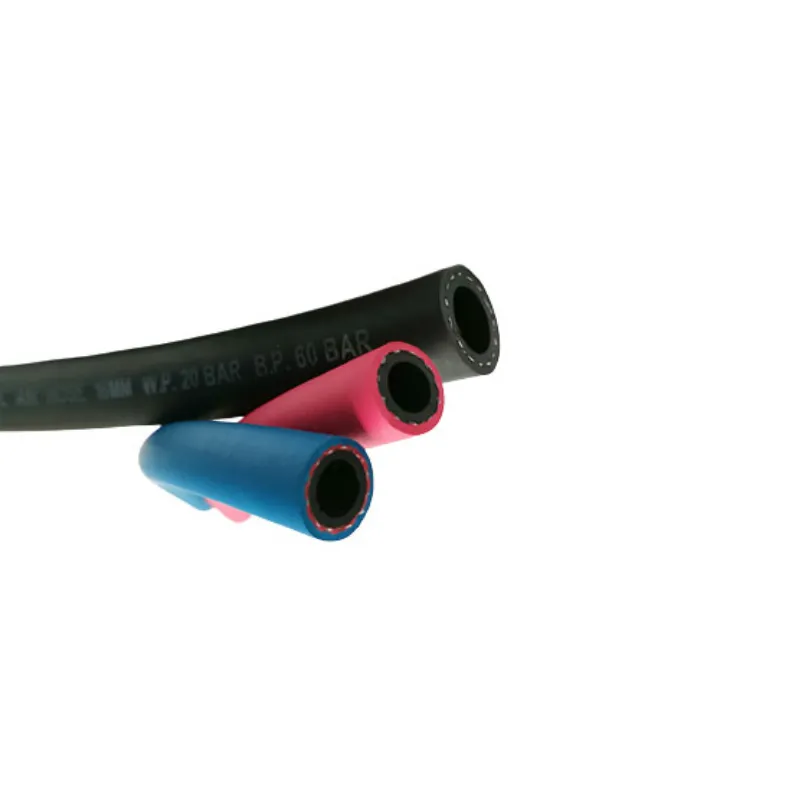
Building Trust: Commitments and Support for Air Hose Wholesale
Reliability in **air hose wholesale** extends beyond the product itself. It encompasses the entire customer journey, from initial inquiry to after-sales support. A trustworthy supplier provides clear assurances and robust support systems.
Quality Assurance & Certifications
JY Hose, as a leading provider of Textile Reinforced Air Hoses, adheres to stringent quality control protocols. Our manufacturing processes are certified under **ISO 9001:2015**, ensuring that every step, from raw material inspection to final product testing, meets international quality management standards. Our products also conform to relevant industry standards like **ASTM D380** (for rubber hose physical properties) and **ANSI B18.2.1** (for fastener compatibility where applicable), guaranteeing performance and safety. We regularly conduct internal audits and participate in third-party certifications to maintain our high standards, providing our clients with absolute confidence in their air hose wholesale purchases.
Delivery and Logistics
Understanding the critical nature of timely supply for air hose bulk orders, we maintain efficient inventory management and strong logistics partnerships. Our typical delivery lead times for standard products range from 7-14 business days, while customized solutions may require 3-4 weeks, depending on complexity and order volume. We provide transparent tracking and communication throughout the shipping process, ensuring you receive your order precisely when needed. Expedited shipping options are available for urgent requirements.
Warranty and After-Sales Support
All Textile Reinforced Air Hoses from JY Hose come with a standard 12-month warranty against manufacturing defects from the date of purchase. Our dedicated customer support team is available to assist with product selection, technical inquiries, installation guidance, and any warranty claims. We pride ourselves on responsive and knowledgeable support, ensuring that your investment in air hose wholesale provides long-term value and peace of mind.
Frequently Asked Questions (FAQ) about Textile Reinforced Air Hose
Q1: What is "textile reinforcement" in an air hose?
A1: Textile reinforcement refers to layers of high-tensile synthetic fibers (like polyester or nylon) that are braided or spiraled between the inner tube and outer cover of the hose. This reinforcement is crucial for providing the hose with its strength, pressure resistance (working pressure and burst pressure), and dimensional stability, preventing expansion or bursting under pressure. It's a key feature for durable air hose products.
Q2: What is the typical lifespan of a Textile Reinforced Air Hose?
A2: The lifespan of a Textile Reinforced Air Hose largely depends on its material quality, operating conditions, and proper maintenance. High-quality hoses, when used within their specified pressure and temperature ranges and protected from excessive abrasion or chemical exposure, can last anywhere from 3 to 10 years or even longer in less demanding applications. Regular inspection and replacement as needed are recommended to ensure safety and performance.
Q3: Can these hoses be used for other media besides air?
A3: While primarily designed for compressed air, Textile Reinforced Air Hoses can sometimes be used for water or other non-corrosive, non-aggressive fluids, depending on the specific inner tube material (e.g., EPDM for water, NBR for some oils) and the hose's pressure rating. However, it's crucial to consult the manufacturer's specifications and chemical compatibility charts to ensure suitability for any media other than air to avoid premature failure or safety hazards. This is particularly important for air cooler hose applications where water or coolant might be present.
Q4: What is "Durometer" in relation to hose materials?
A4: Durometer is a measure of the hardness of a material, typically rubber or plastic. It's indicated by a number on a specific scale (e.g., Shore A for softer rubbers). A higher durometer value means a harder material. For air hoses, the durometer affects flexibility, abrasion resistance, and grip. Manufacturers specify the durometer of the inner tube and outer cover to ensure the right balance of properties for the hose's intended application. For example, a common range for air hose covers might be 70-80 Shore A.
Q5: Are there specific installation standards for industrial air hoses?
A5: Yes, proper installation is critical for hose performance and safety. While there isn't one universal standard, best practices and industry guidelines (e.g., from NAHAD - the Association for Hose and Accessories Distribution, or specific equipment manufacturers) recommend ensuring hoses are not kinked, over-bent (respecting the minimum bend radius), twisted, or subjected to excessive tensile stress. Proper fittings and crimping are essential to prevent leaks. Regular visual inspection for signs of wear, cuts, or abrasions is also a key part of maintenance.
Q6: How do you calculate the minimum bend radius for an air hose?
A6: The minimum bend radius is the smallest radius to which a hose can be bent without damaging it or significantly reducing its service life. It is usually specified by the manufacturer (e.g., in inches or millimeters) and is typically measured to the inside curve of the hose. Exceeding this limit can cause kinking, collapse of the inner tube, or premature failure of the reinforcement, impacting air flow hose efficiency. This information is crucial for correct installation.
Q7: What makes a hose suitable for air duct hose or air cooler hose applications?
A7: For air duct hose or air cooler hose applications, key considerations include the hose's ability to handle potentially higher temperatures (from hot air or cooling liquids), resistance to condensation or moisture, and often a larger diameter for high volume air or coolant flow. Flexibility for routing in HVAC systems and sometimes flame retardancy are also important. While Textile Reinforced Air Hoses can serve, specialized air ducting with spring wire reinforcement or specific thermal properties might be more suitable for dedicated ventilation or high-temperature cooling lines.
Further Reading & Industry Insights
To deepen your understanding of industrial hoses and **air hose wholesale** market dynamics, we recommend exploring resources from reputable industry organizations and academic publications:
- NAHAD (National Association for Hose and Accessories Distribution): Provides valuable resources, standards, and training related to industrial hose assembly and safety. https://www.nahad.org/
- Parker Hannifin - Hose Product Technical Information: A leading manufacturer that often publishes detailed technical bulletins and guides on hose selection and applications. https://www.parker.com/portal/site/PARKER/menuitem.c2b4c5dd10a11204d16d0048102a0a10/
- "Rubber Technology: Compounding and Testing for Performance" by J.S. Dick and J.R. Dierkes: An academic text offering in-depth knowledge on rubber materials and their properties, relevant to understanding hose construction. (No direct public link, but available via university libraries or scientific publishers)
- Fluid Power Journal: A trade publication covering various aspects of fluid power, including pneumatic systems and hose technology. https://fluidpowerjournal.com/
Latest News
Steel Wire Reinforced Hydraulic Hose SAE 100 R1 / EN853 1SN S
NewsOct.17,2024
Two Layers Steel Wire Reinforced Hydraulic Hose SAE 100 R2 / EN853 2SN
NewsSep.03,2024
Textile Braid Reinforced Hydraulic Hose SAE100 R3+R6
NewsSep.03,2024
Textile Reinforced Hydraulic oil Suction Hose with embedded Steel Wire SAE 100 R4
NewsSep.03,2024
Single Wire Braid and Textile Covered Hydraulic Hose SAE 100 R5
NewsSep.03,2024
High Pressure Thermoplastic Hydraulic Hose SAE 100 R7 / EN855 R7 - SAE 100 R8 / EN855 R8
NewsSep.03,2024
Heavy Duty Four-layer Steel Wire Spiral Reinforced Hydraulic Hose SAE100R9+R10+R12
NewsSep.03,2024
Heavy Duty Multi-layer Steel Wire Reinforced Hydraulic Hose SAE100R13 SAE100R15
NewsSep.03,2024
Latest Products
